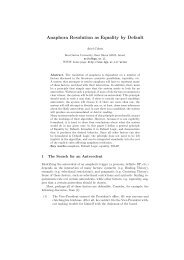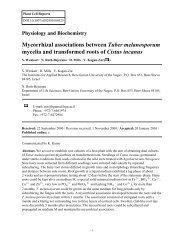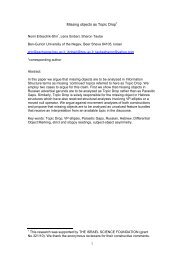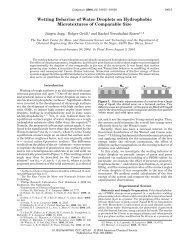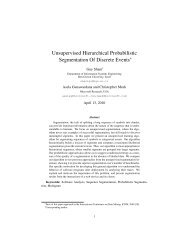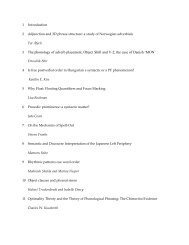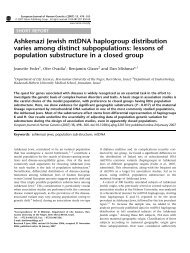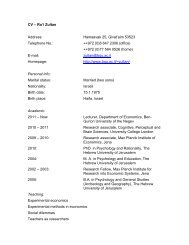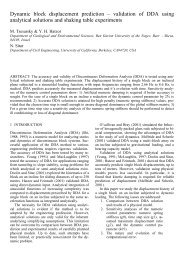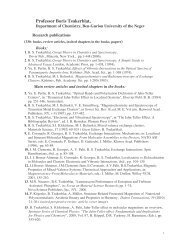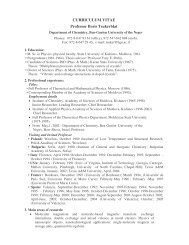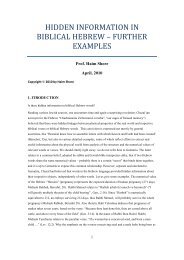Generics, Frequency Adverbs, and Probability
Generics, Frequency Adverbs, and Probability
Generics, Frequency Adverbs, and Probability
You also want an ePaper? Increase the reach of your titles
YUMPU automatically turns print PDFs into web optimized ePapers that Google loves.
to infinite sequences, so long as these sequences are “sufficiently” long.<br />
2.3 Branching Time<br />
Intuitively, when we make a probability judgment, we consider not only the<br />
sequence we have actually observed, but possible forms this sequence might<br />
take in the future. It is, therefore, particularly attractive to investigate probability<br />
judgments in a framework which regards time as nonlinear, or branching.<br />
That is to say, for any given time there is more than one possible future.<br />
There is a course of time where the world is destroyed in the year 2000, there<br />
is a course of time where you become the President of Dalmatia, there is a<br />
course of time where I never finish writing this paper, <strong>and</strong> so on.<br />
I will refer to a linear course of time as a history. 7<br />
History H continues<br />
history H ′ , written as H ′ ❁ H, iff H ′ forms an initial segment of H.<br />
Each sequence can be taken to represent one possible history. Hence I<br />
propose the following informal definition of probability:<br />
Definition 2 (<strong>Probability</strong>)<br />
P (φ|ψ) = l iff for every admissible history H <strong>and</strong> every ɛ > 0, there is<br />
a history H ′ ❁ H, s.t. for every history H ′′ , H ′ ❁ H ′′ ❁ H, the limiting<br />
relative frequency of φs among ψ will be within ɛ of l.<br />
For example, given a fair coin, for every history H <strong>and</strong> for every ɛ ><br />
0 there is some initial segment of H where the relative frequency may be<br />
7 The term is due to Thomason (1970).<br />
20



